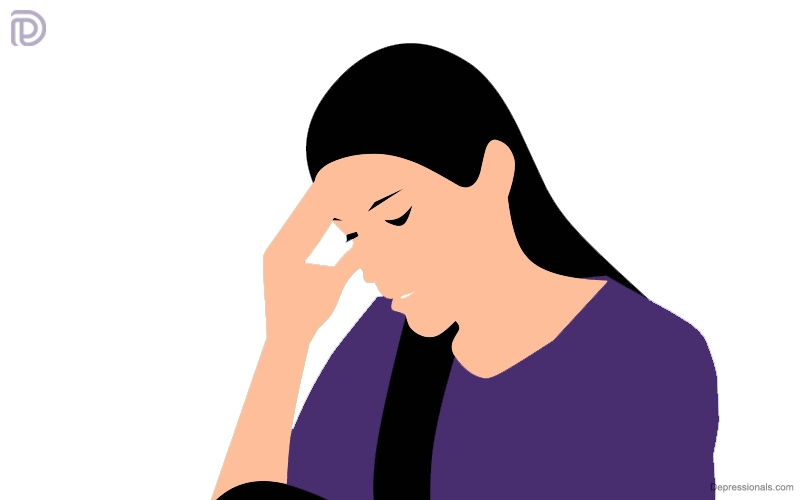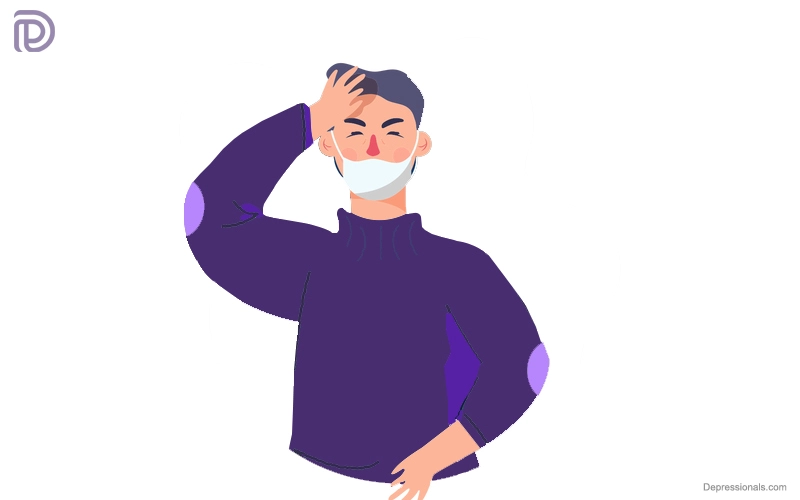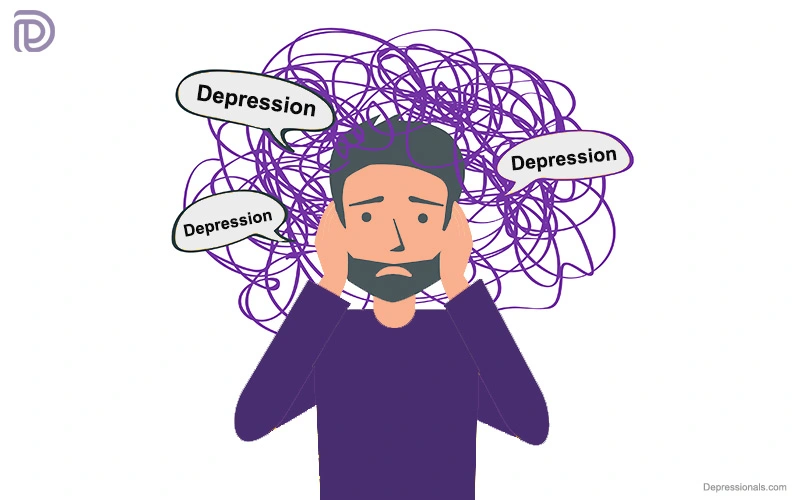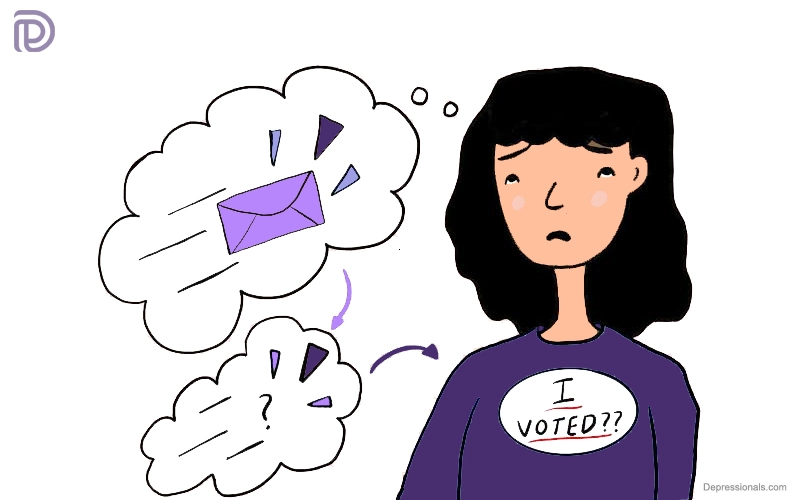What is depressive psychosis?
Depressive Psychosis is a form of major depression in which psychosis is present along with severe depression. Symptoms of psychosis include hallucinations (such as hearing a voice that tells you that you’re no good), delusions (such as feelings of failure, being worthless or having committed a sin), or other insanities. An estimated one out of every four patients hospitalized with depression suffers from psychotic depression.
According to the National Alliance on Mental Illness (NAMI), approximately 20 percent of people with major depression also experience psychotic symptoms, according to the National Alliance on Mental Illness (NAMI). The combination of these two conditions is called depressive psychosis. You may also hear this condition called:
- Delusional depression
- Psychotic depression
- Major depressive disorder with mood-congruent psychotic features
- Major depressive disorder with mood-incongruent psychotic features
Psychotic symptoms as well as depression and sadness are part of this condition. You cannot see, hear, smell or believe something that isn’t real. Psychosis caused by depression can be dangerous because of the delusions that lead people to become suicidal.
Related: Depression in Teens
What are the symptoms of depressive psychosis?
Depressive psychosis symptoms refer to symptoms of major depression and psychosis. Depression is a state of feeling unhappy all the time. Feelings such as:
- Sadness
- Hopelessness
- Guilt
- Irritability
Clinical depression may also affect your eating, sleeping and energy levels. The following are symptoms of psychosis:
A study published in the Journal of Clinical Psychiatry states that delusions associated with depressive psychosis are typically guilt-based, paranoid, or body-related. In this case, you may believe you deserve a parasite to feast on your intestines because you are so bad.
Related: Economic Depression
What causes depressive psychosis?

The cause of depressive psychosis is unknown. Chemical imbalances in the brain may play a role in some cases. However, no specific cause has been identified.
What are the risk factors for depressive psychosis?
According to NAMI, mood disorders may be genetically influenced. Researchers don’t know which gene causes psychotic depression, but they do know that having a close family member, like a mother, father, brother or sister, increases your chances of developing the illness. Psychotic depression is also more prevalent in women than in men.
BMC Psychiatry reports that older adults are at the greatest risk of psychotic depression. Psychotic features are present in about 45 percent of people with depression.
How is depressive psychosis diagnosed?
Depressive psychosis can only be diagnosed if you suffer from major depression and psychosis. Psychotic depression sufferers may be afraid of sharing their experiences because they are afraid of being judged.
Depressive episodes must last for at least two weeks to be diagnosed as such. In addition to experiencing five or more of these symptoms, you can be diagnosed with depression:
- The inability to move or agitation
- Weight or appetite changes
- Depressed mood
- Concentration problems
- Guilt feelings
- Oversleeping or insomnia
- An inability to enjoy most activities
- Energy levels are low
- Suicidal thoughts
Along with these thoughts, a person with depressive psychosis is also likely to experience exaggerated hallucinations and delusions, which are false beliefs. Experiencing hallucinations means seeing, hearing, or smelling something, you don’t normally experience.
Read: Double Depression Disorder
What are the complications of depressive psychosis?
Psychotic depression is often considered a psychiatric emergency since sufferers are more likely to develop suicidal thoughts and behaviors, especially if they hear voices telling them to hurt themselves. If you or someone you love are having thoughts of suicide, call 911 immediately.
Recommended: How to Help Someone With Depression
What are the treatments for depressive psychosis?
At present, the FDA has not approved any depressive psychosis treatments. Depression and psychosis can both be treated, but there is no specific treatment for those who are both suffering from these conditions at the same time.
Medications
This condition can be treated by your doctor or referred to a mental health professional specializing in the use of medications for it.
Antidepressant and antipsychotic medications may be prescribed together. Medications commonly used to treat this condition affect the brain’s neurotransmitters.
The most common medications in this class are selective serotonin reuptake inhibitors (SSRIs), such as fluoxetine (Prozac). Atypical antipsychotics, such as:
- Olanzapine (Zyprexa)
- Quetiapine (Seroquel)
- Risperidone (Risperdal)
However, they are most effective after a few months.
Electroconvulsive therapy (ECT)
Electroconvulsive therapy (ECT) is the second treatment option. General anesthesia is used in this treatment, which is typically performed in a hospital setting.
Electrical currents will be administered to the brain in controlled amounts by your psychiatrist. A seizure occurs, which affects your brain’s neurotransmitter levels. There are side effects of this treatment, including short-term memory loss. Suicidal people and those with psychotic symptoms may benefit from this treatment, though it often works quickly and effectively for them.
These options can be discussed with your psychiatrist so that you and your family can decide what is best for you. You may be advised to take medicines after ECT as well since relapse is possible.
Recommended: How to Overcome Depression
Steps to recovery
When a person is suffering from psychosis, they may have distorted perceptions of reality. It is vital to seek immediate medical attention if you experience delusions or hallucinations associated with psychotic depression.
It is possible that a patient will have to spend some time in the hospital before undergoing an inpatient or outpatient treatment program. The best treatment for depression with psychosis is still a work in progress.
The goal of treatment is to reduce or manage symptoms. Psychotic depression cannot be completely cured with current treatments. Therefore, it is usually necessary to treat patients on an ongoing basis.
What is the outlook for people with depressive psychosis?
A person living with depression psychosis can feel as though they are constantly battling. You might worry they’ll come back, even if they’ve been controlled for a while. Psychotherapy can also be useful for managing symptoms and overcoming fears.
However, treatments can cause side effects, as well as help, reduce psychotic and depressive thoughts. Some of these are:
- Short-term memory loss
- Drowsiness
- Dizziness
- Trouble sleeping
- Changes in weight
However, you can enjoy a better quality of life while getting these treatments rather than without any of them.
Suicide prevention
You should take immediate steps to prevent someone from self-harming or hurting another person:
- Dial 911 or the emergency number in your area.
- Keep the person with you until help arrives.
- Remove any knives, guns, and medications that could cause harm.
- Listen without judging, arguing or threatening.
Help is available through a crisis hotline or a suicide prevention hotline if you believe someone might be considering suicide. Dial 800-273-8255 to reach the National Suicide Prevention Lifeline.
Recommend: Mental Help Resources






I do agree with all the ideas you have presented in your post. They are very convincing and will certainly work. Still, the posts are very short for novices. Could you please extend them a bit from next time? Thanks for the post.
The article is good. Thank you so much.
You made a few fine points there. I did a search on the theme and found a good number of persons will go along with with your blog.